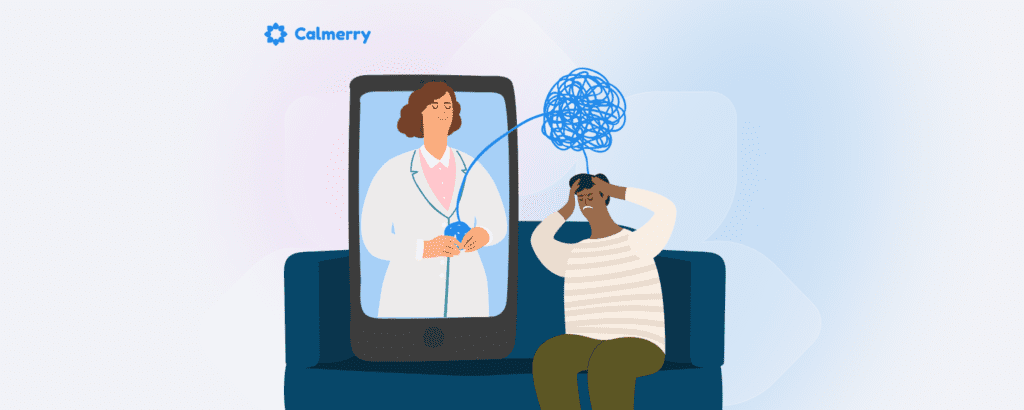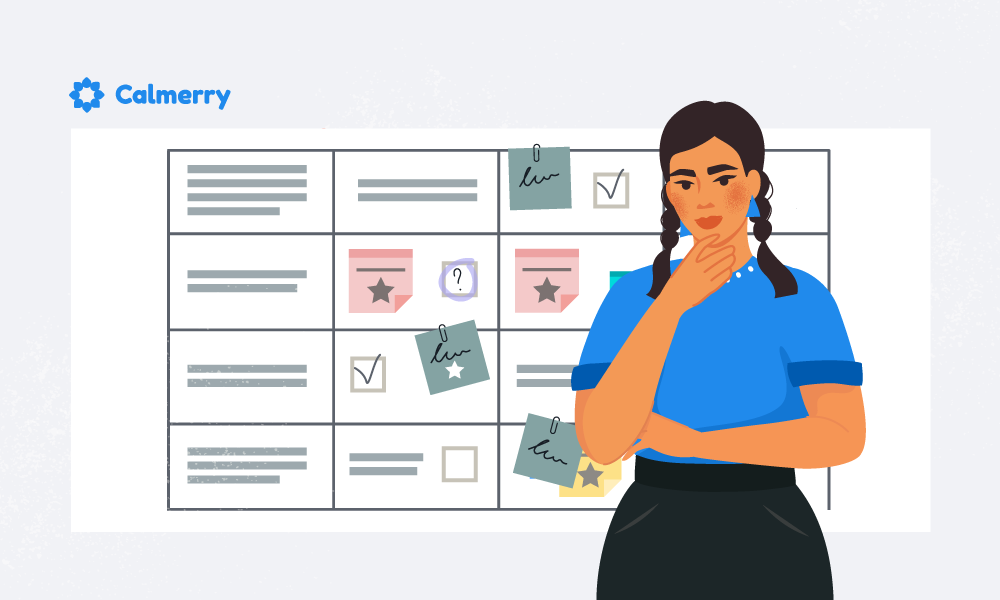Quiz: What Type of Therapy Do I Need?

In this article
There are over 400 types of psychotherapy. So, no wonder that many people feel overwhelmed and refrain from seeking help because they don’t know what to look for or expect.
This uncertainty can be a significant barrier to getting the support one needs. To help clear up some of this confusion, we’ve created a quiz to guide you through the maze of therapeutic approaches.
Who is this quiz for?
It’s for anyone curious about starting therapy or feels they might need a bit of help but isn’t quite sure what to look for.
It’s also for those who want to understand what to expect from the sessions and what tools therapists use.
Is the quiz accurate?
This quiz is based on 12 common therapy approaches. It won’t cover everything, but it’s a good start. Think of it as a friendly nudge in the right direction, not the whole map.
It’s also important to note: while finding a therapy type that resonates with you can be beneficial, research shows that factors like the therapeutic alliance – the collaborative partnership and bond between you and your therapist – often play a more crucial role in the success of therapy.
How to take the quiz and understand the results
Just go through these 8 questions and pick the answer that feels most like you.
In the end, the letter(s) you’ve picked the most will point to a type (or types) of therapy that might suit you.
Each letter in your answers matches up with a type of therapy:
- A) Cognitive Behavioral Therapy (CBT)
- B) Motivational Interviewing (MI)
- C) Person-Centered Therapy
- D) Solution-Focused Brief Therapy
- E) Narrative Therapy
- F) Dialectical Behavior Therapy (DBT)
- G) Interpersonal Therapy
- H) Trauma-Specific Therapies
- I) Eclectic Therapy
- J) Mindfulness-Based Cognitive Therapy
- K) Integrative Therapy
- L) Humanistic Therapy
What type of therapy do I need? – Quiz
1. When dealing with personal challenges, you:
- A) Want to identify unhelpful thoughts and learn to challenge them.
- B) Seek to unlock your inner motivation and find personal reasons for change.
- C) Value a supportive space where you can explore your feelings in depth.
- D) Look for quick solutions and prefer focusing on the “here and now.”
- E) Are interested in discovering the story of your life and reshaping it.
- F) Want to learn skills to regulate your emotions and improve relationships.
- G) Aim to improve interpersonal relationships and communication skills.
- H) Need to address and heal from past trauma in a way that’s focused and specialized.
- I) Prefer an approach that uses techniques from different therapies tailored to you.
- J) Are looking to incorporate mindfulness and present-moment awareness into coping with issues.
- K) Desire a therapy that adapts to fit your unique needs and circumstances.
- L) Wish to focus on personal growth and self-actualization.
2. When thinking about your mental health journey, you prefer:
- A) A structured approach with measurable goals.
- B) To be guided to find your own path and solutions.
- C) To have a therapist who listens deeply and reflects your feelings back to you.
- D) To work in a goal-oriented way that emphasizes your strengths.
- E) To explore the narrative arc of your life, including past, present, and future.
- F) To work on specific life skills in a systematic way.
- G) To improve how you interact with others and manage interpersonal situations.
- H) To engage in a process tailored to your particular experiences of trauma.
- I) To blend elements that work best for you from a variety of therapeutic methods.
- J) To be present with your thoughts without judgment and to develop a deeper sense of calm.
- K) To use a blend of methods that evolve with you over time.
- L) To focus on self-exploration and finding meaning in your experiences.
3. In your ideal therapy session, you are:
- A) Challenging negative thought patterns and behaviors.
- B) Building motivation and readiness to change certain behaviors.
- C) Being understood and accepted for who you are.
- D) Focusing on specific problems and developing concrete solutions.
- E) Reauthoring your personal story and the way you view your problems.
- F) Learning to tolerate distress and improve your emotional regulation.
- G) Working through interpersonal deficits and building social skills.
- H) Processing traumatic events in a safe and controlled manner.
- I) Drawing from a toolkit of different therapeutic techniques as needed.
- J) Practicing mindfulness to increase awareness and reduce stress.
- K) Integrating various techniques in a cohesive approach that changes as you do.
- L) Emphasizing personal growth and fulfillment.
4. When you encounter stress or anxiety, you find it most helpful to:
- A) Challenge and replace negative thoughts with positive ones.
- B) Discover personal motivations to manage stress constructively.
- C) Have a supportive and empathetic listener to help you process your feelings.
- D) Focus on quick strategies to alleviate immediate stress.
- E) Rewrite internal narratives that contribute to stress.
- F) Use specific techniques to tolerate and reduce intense emotions.
- G) Explore how your relationships can influence your stress levels.
- H) Seek therapy designed to address and process traumatic stressors.
- I) Apply a mix of strategies that you’ve learned work best for you.
- J) Practice mindfulness exercises to stay grounded and calm.
- K) Work with a variety of therapeutic practices to find what reduces stress for you.
- L) Focus on personal growth to overcome stress.
5. If you want to understand more about why you feel or behave the way you do, you would:
- A) Look at how your thoughts affect your emotions and behavior.
- B) Reflect on your past and current motivations.
- C) Engage in self-reflection in a non-judgmental space.
- D) Set goals to uncover how your strengths can inform your behavior.
- E) Examine the personal stories you’ve created about your life.
- F) Learn to identify triggers and develop coping strategies.
- G) Discuss past and current relationships to find patterns.
- H) Engage with therapies that address past traumas affecting your behavior.
- I) Use a combination of approaches to uncover underlying reasons for your behavior.
- J) Use mindfulness to become more aware of the connection between your thoughts, feelings, and behaviors.
- K) Explore a variety of techniques to deepen self-understanding.
- L) Empower yourself through increased self-awareness.
6. When discussing your life and issues in therapy, you prefer to:
- A) Focus on changing thought patterns and behaviors.
- B) Find the drive within yourself to make positive changes.
- C) Be genuine and have your therapist truly understand you.
- D) Keep the conversation future-oriented and goal-directed.
- E) Tell your story and see where you can rewrite chapters for a better outcome.
- F) Address problems with a balance of acceptance and change strategies.
- G) Enhance your ability to form and maintain healthy relationships.
- H) Process and heal from traumatic experiences in your past.
- I) Combine different therapeutic strategies that fit your current situation.
- J) Be present with your current experiences and integrate them mindfully.
- K) Have the flexibility to integrate various approaches as you progress.
- L) Understand and realize your potential and personal growth.
7. Your ideal outcome from therapy would be to:
- A) Overcome specific psychological barriers and improve overall functioning.
- B) Feel more motivated and prepared to tackle life’s challenges.
- C) Experience personal growth and self-acceptance.
- D) Achieve quick resolution of your presenting problems.
- E) Transform your life narrative into a more positive and empowering one.
- F) Gain better control over your emotional responses and interpersonal skills.
- G) Improve the quality of your relationships and communication.
- H) Find resolution and a sense of peace after traumatic experiences.
- I) Benefit from a therapy that is custom-fit to your unique personality and life context.
- J) Develop a greater sense of awareness and presence in your everyday life.
- K) Explore and harmonize different parts of your life and experiences.
- L) Foster a deeper connection with yourself and your life’s direction.
8. In dealing with emotional pain, you would like to:
- A) Learn practical skills to reduce symptoms and prevent relapse.
- B) Understand the root cause of your pain to motivate a change in behavior.
- C) Be in an empathic environment where your feelings are valued and heard.
- D) Focus on solutions that can bring immediate relief.
- E) Reinterpret your past experiences to reduce their impact on your current emotional pain.
- F) Apply strategies to tolerate distress and improve relationships affected by your pain.
- G) Examine how your interactions with others can influence your emotional experiences.
- H) Directly address and process traumatic memories that contribute to your pain.
- I) Use a variety of therapeutic methods to find what gives you relief.
- J) Practice mindfulness to help separate yourself from the pain and gain perspective.
- K) Utilize an adaptable set of therapeutic practices to address different aspects of your pain.
- L) Pursue self-actualization to transcend your pain and find meaning.
Next steps after the quiz
Once you finish, you might have a clearer idea of what you’re looking for.
And if you’re ready for the next step, come on over to Calmerry. We have over 1,000 trained and experienced mental health professionals.
You will start with a survey, where you can tell us about your needs and preferences – and we’ll match you with an online therapist in 1 hour.
Don’t worry if you’re still not 100% sure – our therapists are trained in over 30 different approaches. They’ll be there to work out the best approaches for you. And we’re all about finding the right fit for you.
online therapy
live video session


